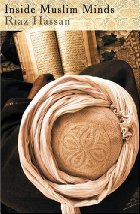 Well I really blew it in the eyes of some readers when I posted on Scott Atran’s response to Sam Harris’s public statements about Islam and its relationship to terrorism. Let’s see if I can learn anything and do better with my presentation of Atran’s response to similar claims by Richard Dawkins.
Well I really blew it in the eyes of some readers when I posted on Scott Atran’s response to Sam Harris’s public statements about Islam and its relationship to terrorism. Let’s see if I can learn anything and do better with my presentation of Atran’s response to similar claims by Richard Dawkins.
Maybe if I begin by quoting the following words of Scott Atran I will be off to a better start:
I certainly don’t criticize [Harris and Dawkins] and other scientifically minded new atheists for wanting to rid the world of dogmatically held beliefs that are vapid, barbarous, anachronistic, and wrong. I object to their manner of combat, which is often shrill, scientifically baseless, psychologically uninformed, politically naïve, and counterproductive for goals we share. (Talking to the Enemy, p. 427, my bolded emphasis as throughout)
Now I really have liked and gained so much from Richard Dawkins’ writings. Some of his ideas I have had reservations about, and a few I cannot agree with at all given my other studies and experiences on the topics. But I like his efforts to promote rationality in public discourse. And I especially like his educational works on evolution. For all of that, though it is a hard to accept, the cruel fact is that not many of us are perfect in every way.
Sometimes a prominent public figure speaks about a field that is outside his or her area of expertise. Those who pull this off the most successfully are comedians. The light-heartedness of their grasp of issues pays off. No-one studies their jokes in order to educate themselves about the fundamental realities of how the world really works. (I know, many jokes are “funny because they’re true” but we don’t learn what’s true from them.)
But when a public figure whom I admire in many ways says something publicly, as if it were fact, that I know is contradicted by the publicly available research data itself, and that is even dangerous because it can fan a wider ignorance and lend support to mischief and harmful actions, then it hurts. What’s more, because there are a few areas where I do have more knowledge, being more widely read in the relevant areas, I do feel some sense of responsibility to try to speak up in some way when I hear a prominent person influencing others with misinformation. What I would like to achieve if at all possible is that a few others might for themselves explore the works, the information, the research, that belies many of the claims of Dawkins and Harris about the link between Islam and terrorism.
The first of the “new atheist” publications about religion that I read was Dan Dennett’s Breaking the Spell. It was quite different in approach from Harris’s, Hitchens’ and Dawkins’s contributions, so I was interested to see that Atran likewise does not have the same criticism of Dan Dennett as he has of Harris’s and Dawkins’s books:
Dan Dennett treats the science of religion in a serious way. Dan believes that universal education should include instruction in the history of religion and a survey of contemporary religious beliefs. Once out in the open for everyone to examine, science can better beat religion in open competition. My own guess is that it won’t work out that way, any more than logic winning out over passion or perfume in the competition for a mate. (p. 525)
So I hope no-one thinks I’m “Dawkins bashing”. It is possible to have a high regard for someone yet disagree with them profoundly on particular viewpoints and endeavour to appeal to verifiable facts to make one’s point rather than accusing others of dishonesty.
Here is a passage from Dawkins’ The God Delusion that Atran finds problematic — he actually describes it as “fantasy”. So let’s read Dawkins’ words and then calmly and rationally consider Atran’s disagreement with them:
Suicide bombers do what they do because they really believe what they were taught in their religious schools; that duty to God exceeds all other priorities, and that martyrdom in his service will be rewarded in the gardens of Paradise. And they were taught that lesson not necessarily by extremist fanatics but by decent, gentle, mainstream religious instructors, who lined them up in their madrasahs, sitting in rows, rhythmically nodding their innocent little heads up and down while they learned every word of the holy book like demented parrots. Continue reading “Dawkins’s Delusion: The Slavish Mind”



